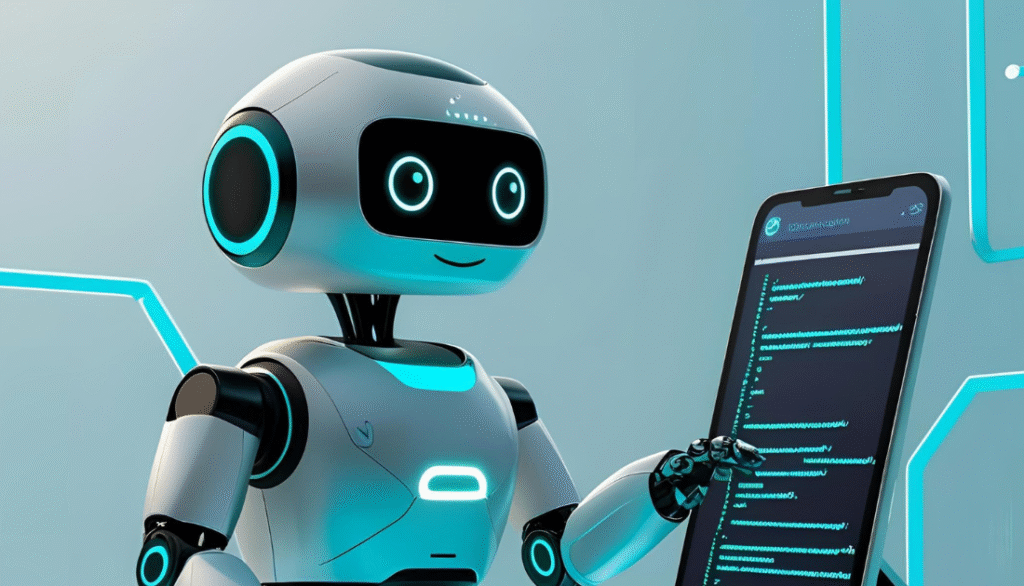Hugging Face has officially opened orders for Reachy Mini, a compact desktop robot designed for developers, educators, and hobbyists.
Highlights
- Developer-First Design: Reachy Mini is a DIY desktop robot made for coders, educators, and hobbyists, launching in two versions—Lite ($299) and Wireless ($449).
- Fully Programmable with Python: Users can integrate vision models, real-time motion, object tracking, and interactive tasks using Hugging Face’s ML tools.
- Direct Hugging Face Hub Integration: Reachy Mini links natively with over 1.7M models and 400K datasets—turning the robot into a live AI testbed.
- Ethically Trained and Open-Sourced: Built using licensed, consented data. Hardware, firmware, and control systems are all openly modifiable.
- Community-Driven Development: Feedback from testers—like a child wanting portability—shaped the product’s wireless model.
- Low-Cost Alternative: Priced far below competitors like Optimus or Unitree, Reachy Mini brings robotics to classrooms, startups, and solo devs.
- Real-Time Collaboration via Hugging Face Spaces: Enables community sharing, remote control, and live demos in educational or prototyping environments.
- Shipping Soon: Reachy Mini Lite ships next month, with Wireless following later in the year—fast rollout compared to traditional robotics timelines.
The initiative continues Hugging Face’s mission to make AI and robotics more accessible, customizable, and transparent.
Two Models, One DIY Philosophy
Following its initial prototype reveal in May alongside the larger humanoid robot HopeJR, Reachy Mini now arrives in two variants:
- Reachy Mini Lite ($299): Requires connection to an external computer.
- Reachy Mini Wireless ($449): Runs independently on a Raspberry Pi 5, offering full portability.
Both versions ship as do-it-yourself kits, enabling users to assemble, program, and customize their robots from scratch.
Fully Programmable and Hugging Face Integrated
Reachy Mini features expressive digital “eyes,” twin antennae, and Python programmability. It integrates seamlessly with the Hugging Face Hub, offering direct access to over 1.7 million machine learning models and 400,000+ datasets.
This allows developers to build and run AI-powered applications directly on the robot, from vision models to interactive experiences.
The robot supports tasks such as,
- Real-time motion simulation
- Object tracking
- Gesture-to-avatar translation
- Educational coding projects
These capabilities make Reachy Mini suitable for a wide range of use cases—from classroom education and creative storytelling to rapid AI prototyping.
Designed with Community and Openness in Mind
Hugging Face emphasizes ethical design and user ownership. CEO Clément Delangue has described the company’s approach as a response to growing concerns over centralized, proprietary AI systems.
“We don’t want a future where millions of home robots are controlled by a single company,” said Delangue in an interview with TechCrunch. “With Reachy Mini, our goal is to give people the ability to understand and control their robots.”
Community feedback has played a significant role in shaping Reachy Mini’s design. For example, a tester’s daughter expressed the desire to carry the robot around—an insight that helped inspire the development of the wireless model.
Open-Source Hardware and Software
Reachy Mini is part of a broader open-source vision. Following the acquisition of Pollen Robotics and the open-sourcing of Reachy 2, Hugging Face is extending its transparent design philosophy into physical robotics.
All hardware designs, firmware, and control code are open and modifiable—aligning with the platform’s long-standing commitment to collaborative AI development.
As reported by Wired and eWeek, this stance reflects a growing movement advocating for open-source robotics as a safeguard against opaque, corporate-controlled AI systems.
Shipping Timeline and Expansion Plans
- Reachy Mini Lite is scheduled to begin shipping next month.
- Reachy Mini Wireless will follow later this year.
Unlike long pre-order cycles common in the robotics industry, Hugging Face aims to deliver quickly and begin collecting user feedback to guide future updates and feature additions.
Affordability That Expands Access
At a starting price of $299, Reachy Mini significantly lowers the barrier to entry for robotics experimentation.
Compared to devices like Tesla’s Optimus, Reachy opens doors for small studios, educators, and individual developers to engage with advanced robotics on a modest budget.
Ecosystem Integration and Collaborative Potential
Reachy is not a standalone product—it’s part of a broader Hugging Face hardware ecosystem that includes HopeJR and the Asteria Film Co. projects. The robot connects natively to Hugging Face Spaces, enabling real-time collaboration and app sharing across the developer community.
From interactive robotics demos to educational curricula, Reachy Mini enables a direct pipeline from code to real-world motion, democratizing access to physical AI development tools.


